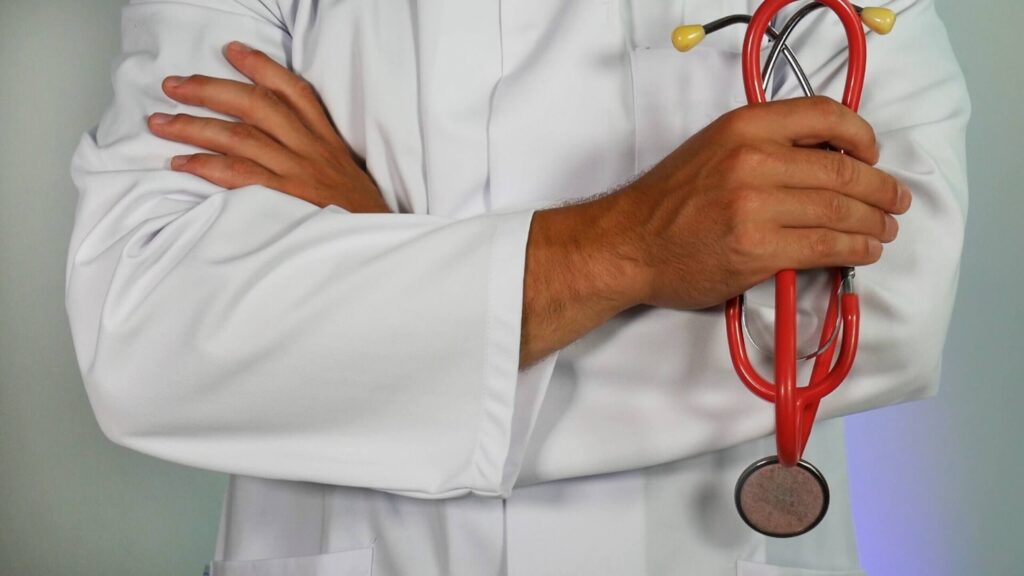When you lift your arm, you are doing so voluntarily and controlling the movement. When your heart beats, that is controlled involuntarily by your nervous system. When you are stressed, your heart may race faster and your blood pressure may increase. As a professional working through your addiction, finding a way to have more control over your mental and physical functions can help you be more successful. Using biofeedback therapy for addiction treatment is one proven method that will enable you to do just that.
Control Over Your Health
Biofeedback can help you harness the power of your mind and become more aware of what’s going on inside your body, so you can gain more control over your health. In particular, biofeedback promotes relaxation, which can help relieve a number of conditions that are related to stress. As a professional healthcare provider, lawyer, first responder, or pilot, you are understandably under a lot of stress. As a professional in addiction treatment, you could benefit from using biofeedback therapy.
Non-Drug Treatment
Biofeedback therapy for addiction treatment is a non-drug treatment in which you learn how to control your normally involuntary process, such as muscle tension, blood pressure, and heart rate. Three common types of biofeedback therapy include:
- Thermal biofeedback – measures skin temperature.
- Electromyography – measures muscle tension.
- Neurofeedback, or EEG biofeedback – focuses on electrical brain activity.
EEG biofeedback can help with attention deficit hyperactivity disorder (ADHD), seizures, anxiety, depression, and addiction.
Biofeedback Sessions – What to Expect
During the biofeedback session, your therapist will attach electrodes to your skin that send information to a monitor. Your therapist will then view those measurements and identify a range of mental activities and relaxation techniques that will be most beneficial to you in regulating your bodily processes. When you participate in biofeedback therapy for addiction treatment, you will learn how to control these processes without the need for monitoring.
Relaxation Exercises
Accompanying the biofeedback, therapy will typically include different relaxation exercises such as:
- Deep breathing
- Progressive muscle relaxation — alternately tightening and then relaxing different muscle groups
- Guided imagery — concentrating on a specific image (such as the color and texture of an orange) to focus your mind and make you feel more relaxed
- Mindfulness meditation — focusing your thoughts and letting go of negative emotions.
Recognizing Stress and Anxiety
Your biofeedback sessions will help you learn how to recognize the physical signs and symptoms of stress and anxiety, such as increased heart rate, body temperature, and muscle tension. When you are in a stressed state, your body tends to go into a state of “fight or flight” and that makes certain conditions worse. Biofeedback therapy will help you understand how to manage that stress and its symptoms more effectively.
Biofeedback Therapy Effectiveness
Several research studies have been conducted on the use of biofeedback therapy for addiction treatment. Notable results indicate that neurofeedback decreased the craving to use opioids and improved general mental health in patients who were dependent on the drug. The results suggest that neurofeedback training over a long period may be more effective than pharmacotherapy alone in treating substance use and in promoting mental health.
Neurofeedback attempts to address the fundamental operational functions of the brain and acts as a mechanism for the brain to self-regulate. Its goal is to correct irregular brain functions and consequently improve psychological abnormalities. Research also confirms the stability of neurofeedback effects and its prevention of negative side effects.
Another study explains that acute and chronic drug abuse results in significant alteration of the brain activity. Drug addiction is a chronic, relapsing mental disease that results from the prolonged effects of drugs on the brain. Drug addiction can take control of the brain and behavior by activating and reinforcing behavioral patterns that are excessively directed to compulsive drug use. When using biofeedback therapy for addiction treatment, you learn how to take back that control so that you can work toward a successful recovery.
Providence Supports Professionals Struggling with Addiction
At Providence Treatment, we provide the cutting-edge treatment you need to overcome your addiction. As part of the top-quality services we offer to you as a professional, we provide biofeedback therapy through a partnership with the Widener University’s Graduate School of Psychology. Also, during COVID-19, we offer HIPAA-compliant telehealth to support you while keeping everyone safe and healthy. You can overcome addiction with outpatient treatments at Providence Treatment. If you need help, contact us at 484.469.9592.









